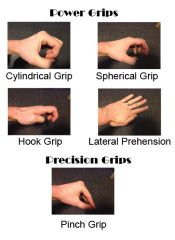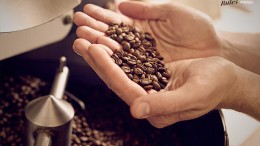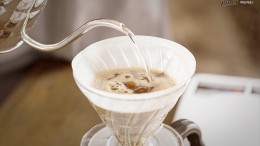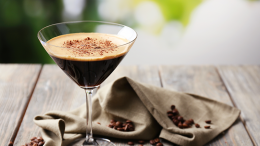Pop bubble wrap.
Decreased use of the left dominant upper extremity (UE) and left unilateral spatial neglect were significant limiting factors during task performance.
WebOccupational Therapy Goals LTG: To improve function in FM development, _____will increase UE strength and stability to complete 10 minute task in prone, 90% of the time.
WebSMART Goals. 4.
WebTo give you a better idea of the type of goal you may be given in occupational therapy, here are a few examples: Be able to drive independently in 6 months Be able to pick up 50 pounds, holding it for 20 seconds Operate a piece of machinery (i.e.
The 10% rule states that the dominant hand possesses a 10% greater grip strength than the nondominant hand. The purpose of this study was to test the utility of the 10% rule in hand rehabilitation. Decrease Anterior Knee Pain Over the next four weeks, the patients anterior knee pain evaluation during prolonged sitting will decrease from 7/10 to 3/10 to help them return to work in the office.
9 SMART Goal Examples for Occupational Therapy 1. The purpose of this study was to test the utility of the 10% rule in hand rehabilitation. (This activity requires supervision). Jorge S., a 45-yr-old Hispanic man, owns a dog-walking business with two employees.
Lets get you started on activities, exercises, resources, and TOOLS to improve fine motor skills!
WebThe initial occupational therapy evaluation, used to chart progress during the rehabilitation stay and justify continued therapy, is the most important. WebThe initial occupational therapy evaluation, used to chart progress during the rehabilitation stay and justify continued therapy, is the most important. WebOccupational Therapy Goals LTG: To improve function in FM development, _____will increase UE strength and stability to complete 10 minute task in prone, 90% of the time. WebOT Goal Examples for Pediatrics | Occupational Therapy OT Goal Examples for Pediatrics Fine Motor Goals: Cutting: _____________ will snip with scissors in 4 out of 5 trials with ________ assist and _____% verbal cues to promote separation of sides of hands and hand eye coordination for optimal participation/ success in school setting.
WebWhile occupational therapists may, like physical therapists, work to help patients increase strength and flexibility to minimize impairments, they also help patients learn practical techniques to work around the difficulties imposed on their lives by those impairments. This article provides examples of the application of the AOTA Occupational Therapy Practice Guidelines for Adults With Stroke (Wolf & Nilsen, 2015); it does not encompass the full scope of occupational therapy practice for stroke survivors.
WebActivity ideas for grip strength Sheet E2 Occupational Therapy Kids health information.
The authors wish to acknowledge the participants in the study as well as Ashley Thompson and Angela Moran, who assisted with data entry and analysis, and Stacy Froseth, Tina Caruso, and Rachel Iott who 20.
Jameela assisted Jorge with comparing his actual and predicted task performance. Note the highest needle reading on the gauge (as there is no highest reading needle that stays in place compared to a hand dynamometer). Jorges interests drove the selection of tasks used for RTP. The authors wish to acknowledge the participants in the study as well as Ashley Thompson and Angela Moran, who assisted with data entry and analysis, and Stacy Froseth, Tina Caruso, and Rachel Iott who Squeeze your hands, then bend your wrists to raise your palms as close to your forearms as possible.
WebOT Goal Examples for Pediatrics | Occupational Therapy OT Goal Examples for Pediatrics Fine Motor Goals: Cutting: _____________ will snip with scissors in 4 out of 5 trials with ________ assist and _____% verbal cues to promote separation of sides of hands and hand eye coordination for optimal participation/ success in school setting. Focus on pressing the pads and tips of your fingers into the ball.
Am J Occup Ther September/October 2015, Vol. WebSMART Goals. Guided by the occupational profile, Jorges ability to perform self-care activities was assessed using the FIM (Uniform Data System for Medical Rehabilitation, 1997) and observation of a simple meal preparation task (see Table 1 for assessment results). WebAreas of development like bilateral coordination, pinch and grip strength, separation of the sides of the hand, arch development, finger isolation, thumb web space, and opposition all play a role in refined use of the fingers and hands. Pause, then slowly lower back to your fingers. hand strengthening activities: Squeeze play dough or a stress ball.
For example, Jameela placed necessary items on both sides of the table and encouraged an organized visual search of the table, and she provided a vegetable peeler with a built-up handle and encouraged Jorge to use his left hand to peel the vegetables. WebWhile occupational therapists may, like physical therapists, work to help patients increase strength and flexibility to minimize impairments, they also help patients learn practical techniques to work around the difficulties imposed on their lives by those impairments.
Pick a ball with thickness that makes you feel challenged. Pinch Pinch the ball with fingers and thumb extended. Jorges success was based on occupational therapy interventions that were evidence based, occupation based, and client centered. 9 SMART Goal Examples for Occupational Therapy 1.
The purpose of this study was to test the utility of the 10% rule in hand rehabilitation.
20.
(This activity requires supervision).
Have the patient squeeze the blood pressure cuff as they would a hand dynamometer.
Jameela met Jorge in the ADL kitchen. The purpose of this study was to test the utility of the 10% rule in hand rehabilitation. Pick a ball with thickness that makes you feel challenged. Decrease Anterior Knee Pain Over the next four weeks, the patients anterior knee pain evaluation during prolonged sitting will decrease from 7/10 to 3/10 to help them return to work in the office.
After task completion, Jameela asked Jorge to reflect on his performance. WebIn this article, learn how to write excellent occupational therapy goals, plus read examples of short and long term goals.
ARAT = Action Research Arm Test; BDIII = Beck Depression InventoryII; CBS = Catherine Bergego Scale; FMA = Fugl-Meyer Assessment; LB = lower body; M = motor; OT = occupational therapist; S = sensory; UB = upper body; UE = upper extremity.
Pop bubble wrap.
A SMART goal is an acronym for a goal that consists of five different essential factors: Specific; measurable; attainable; relevant; and time-based. 9 SMART Goal Examples for Occupational Therapy 1.
A SMART goal is an acronym for a goal that consists of five different essential factors: Specific; measurable; attainable; relevant; and time-based.
By continuing to use our website, you are agreeing to, Uniform Data System for Medical Rehabilitation, 1997, Fugl-Meyer, Jsk, Leyman, Olsson, & Steglind, 1975, http://dx.doi.org/10.1053/apmr.2003.50062, http://dx.doi.org/10.1097/00004356-198112000-00001, Occupational Therapy Assessment and Findings, Continuous Publishing Added Articles Alert.
complete ____ minutes of upper body strengthening activities including animal walks, weighted balls, wheelbarrow walking with ___% success.
Jorges additional occupational performance goals will continue to be addressed by home-based and outpatient occupational therapy, including community mobility.
Strong evidence supports visual scanning training (VST) for people with stroke. In addition to individual sessions, Jameela provided Jorge with specific opportunities for self-directed independent practice. Webgrip strength, pinch strength, occupational therapy, normative data, key pinch, mobile device, work . The purpose of this study was to test the utility of the 10% rule in hand rehabilitation. Jameela proceeded to engage Jorge in task practice, providing verbal and physical prompting as needed.
The clinical condition discussed in this inaugural Evidence Connection article is adults with stroke. Pt.
Inflate the cuff to 20-30 mmHg. Weightbearing activities: play games on the floor.
Drop beans into a bottle to make a sensory bottle. Moderate to strong evidence also supports the use of activity- or occupation-based interventions to increase participation in leisure activities.
Useful for physical and occupational therapy, the balls also provide a sensory outlet for Instruct the patient to apply maximal grip force to the cuff. Pt. Each article in this series will summarize the evidence from the published reviews on a given topic and presents an application of the evidence to a related clinical case.
Gross-motor and outdoor activities Play tug of war using a dressing gown cord or twist a towel to make a rope. In the area of motor impairment, strong evidence supports using repetitive task training (RTP) to improve UE function, balance, and mobility and activity and participation for clients with motor impairments. For a basic hand strengthening exercise, squeeze a therapy ball with your fingers and thumb. She had Jorge identify a favorite afternoon meal. STRENGTHENS GRIP AND REDUCES STIFFNESS AND PAIN: Hand therapy exercise balls build strength in the fingers, hands, wrist and forearms, while reducing stiffness and joint pain by stimulating blood circulation in the forearm and hand. This rule has been used for many years to assist therapists in setting strength goals for patients with injured hands.
4. RTP to enhance arm and hand function to support engagement. 3.
The goal was to maximize repetitions of reaching, grasping, transporting or manipulating, and releasing various meaningful task objects as follows: Manipulation of a computer mouse; specifically, organizing icons on the screen of Jorges work laptop, entering data onto a spreadsheet, and so forth. Search for other works by this author on: Copyright 2015 by the American Occupational Therapy Association, Inc. Behavioral assessment of unilateral neglect: Study of the psychometric properties of the Catherine Bergego Scale, Archives of Physical Medicine and Rehabilitation, The post-stroke hemiplegic patient. WebTo give you a better idea of the type of goal you may be given in occupational therapy, here are a few examples: Be able to drive independently in 6 months Be able to pick up 50 pounds, holding it for 20 seconds Operate a piece of machinery (i.e. Gross-motor and outdoor activities Play tug of war using a dressing gown cord or twist a towel to make a rope. WebIn this article, learn how to write excellent occupational therapy goals, plus read examples of short and long term goals. Pt will implement energy conservation techniques for completing multi-step cooking task with Min A, requiring <2 verbal cues by 4 weeks.
Jorge predicted that each task would take approximately 10 min and that he would require supervision. WebAreas of development like bilateral coordination, pinch and grip strength, separation of the sides of the hand, arch development, finger isolation, thumb web space, and opposition all play a role in refined use of the fingers and hands.
The authors wish to acknowledge the participants in the study as well as Ashley Thompson and Angela Moran, who assisted with data entry and analysis, and Stacy Froseth, Tina Caruso, and Rachel Iott who
WebActivity ideas for grip strength Sheet E2 Occupational Therapy Kids health information.
Use a hole punch to create confetti for crafting. Jorge identified the following five occupations as being most important to him: (1) bathing and dressing himself, (2) taking care of his bathroom needs, (3) meal preparation, (4) return to work, and (5) playing cards with friends.
Assessment results revealed difficulty with combining left shoulder, elbow, and forearm motions for performance of efficient forward, side, and overhead reaching; decreased ability to reach, grasp, and transport objects using the left UE; moderate left unilateral neglect with poor awareness; diminished tactile sensation of the left arm and hand; and minimal evidence of emerging depression (see Table 1).
On the basis of Jorges primary areas of interest, assessment results, and the anticipated discharge environment (i.e., home with supervision), treatment goals were developed to target increasing independence in the performance of self-care skills, simple meal preparation, work-related activities, and the leisure activity of playing cards.
This is a great tool for occupational therapists and other health professionals when composing goals and checking that each goal contains all of the essential components. This will be achieved by taking prescribed medication daily.
WebTo give you a better idea of the type of goal you may be given in occupational therapy, here are a few examples: Be able to drive independently in 6 months Be able to pick up 50 pounds, holding it for 20 seconds Operate a piece of machinery (i.e. doi: https://doi.org/10.5014/ajot.2015.695002. Jorges additional occupational performance goals will continue to be addressed by home-based and outpatient occupational therapy, including community mobility.
Everyday play activities using small toys or manipulatives.
WebOccupational therapists play a key role in the rehabilitation of hand injuries, using goals to improve range of motion, restore strength and promote independent living. Instruct the patient to apply maximal grip force to the cuff. 3. He lives with his partner in a two-bedroom elevator apartment in an urban area.
STRENGTHENS GRIP AND REDUCES STIFFNESS AND PAIN: Hand therapy exercise balls build strength in the fingers, hands, wrist and forearms, while reducing stiffness and joint pain by stimulating blood circulation in the forearm and hand. Webgrip strength, pinch strength, occupational therapy, normative data, key pinch, mobile device, work . A SMART goal is an acronym for a goal that consists of five different essential factors: Specific; measurable; attainable; relevant; and time-based. The occupation-based intervention of making a chopped salad was chosen because Jorge identified it as meaningful. The 10% rule states that the dominant hand possesses a 10% greater grip strength than the nondominant hand.
Use a hole punch to create confetti for crafting.
Manipulation of bathing and grooming items; specifically, organizing items in a basin, opening and closing containers, and so forth. Program components included, Watching AO videos on his computer, followed by actual task practice of manipulating cooking utensils and grooming items, and.
Examples of gradation include increasing the number of items manipulated; changing the location of items in the environment to encourage reaching over greater distances and in different planes of motion; changing the size, shape, and weight of objects; and varying the speed requirements. WebOccupational Therapy Goals LTG: To improve function in FM development, _____will increase UE strength and stability to complete 10 minute task in prone, 90% of the time. Carry toolboxes, handbags or buckets with water These strategies were also encouraged during self-care, card playing, and meal preparation. Most important, his performance and satisfaction scores on the COPM improved, as did his scores on measures of client factors and performance skills. She introduced the concept of VST to Jorge. Weightbearing activities: play games on the floor. Decrease Anterior Knee Pain Over the next four weeks, the patients anterior knee pain evaluation during prolonged sitting will decrease from 7/10 to 3/10 to help them return to work in the office. Focus on pressing the pads and tips of your fingers into the ball. This is a great tool for occupational therapists and other health professionals when composing goals and checking that each goal contains all of the essential components.
Jameela graded the RTP to present the just-right challenge. Cover Page Footnote . VST to improve performance and compensate for unilateral neglect.
Web1. 20.
The purpose of this study was to test the utility of the 10% rule in hand rehabilitation.
(This activity requires supervision).
will increase activity tolerance to 5 min to increase overall safety and independence for self-care by 2 weeks. Have the patient squeeze the blood pressure cuff as they would a hand dynamometer. Focus on pressing the pads and tips of your fingers into the ball.
WebActivity ideas for grip strength Sheet E2 Occupational Therapy Kids health information.
It is recommended that a 3 second or less grip contraction is sufficient to register maximum reading (Innes, 1999) 60 second rest periods between trials may prevent fatigue although studies have shown measurements taken at shorter durations result in minimal differences (Innes, 1999)
Lets get you started on activities, exercises, resources, and TOOLS to improve fine motor skills! 4.
Pt.
Inflate the cuff to 20-30 mmHg.
Pause, then slowly lower back to your fingers. Evidence Connection articles illustrate how the research evidence from the reviews can be used to inform and guide clinical decision making.
WebOT Goal Examples for Pediatrics | Occupational Therapy OT Goal Examples for Pediatrics Fine Motor Goals: Cutting: _____________ will snip with scissors in 4 out of 5 trials with ________ assist and _____% verbal cues to promote separation of sides of hands and hand eye coordination for optimal participation/ success in school setting.
Jameela began with scanning printed invoices, Jorges computer screen, and a desk space.
On the basis of the evidence, Jameela chose the following interventions to maximize Jorges participation in life tasks: Occupation-based interventions to improve ADLs. WebSMART Goals. Inflate the cuff to 20-30 mmHg.  hand strengthening activities: Squeeze play dough or a stress ball.
hand strengthening activities: Squeeze play dough or a stress ball.
Web1. Jameela began the session by describing the two occupations that would be practiced and asked Jorge to predict (awareness training) how long each would take and how much assistance he would need. hand strengthening activities: Squeeze play dough or a stress ball. Everyday play activities using small toys or manipulatives. will increase activity tolerance to 5 min to increase overall safety and independence for self-care by 2 weeks. Use a hole punch to create confetti for crafting. Cover Page Footnote .
Pt.
Jameela reviewed the evidence from the January/February 2015 issue of the American Journal of Occupational Therapy and the recommendations from the Occupational Therapy Practice Guidelines for Adults With Stroke (Wolf & Nilsen, 2015) and found the following information: Moderate evidence from several studies supports the use of occupation-based interventions to improve performance of activities of daily living (ADLs) in the inpatient setting. elbow, wrist, and digits, as well as grip and strength measurements, to determine the degree to which the patient can manipulate objects.
Jorge and his partner were educated about the signs and symptoms of depression and were provided with resources in the community to address these needs if they emerge.
Jorge was transferred from the acute care floor to the inpatient rehabilitation unit (IRU) with a diagnosis of a right middle cerebral artery infarct and a past medical history significant for hypertension.
Dawn Nilsen, Glen Gillen, Marian Arbesman, Deborah Lieberman; Occupational Therapy Interventions for Adults With Stroke. Gross-motor and outdoor activities Play tug of war using a dressing gown cord or twist a towel to make a rope. She provided an individualized structured program that Jorge carried out with the help of his partner outside of individual sessions. Pt will implement energy conservation techniques for completing multi-step cooking task with Min A, requiring <2 verbal cues by 4 weeks.
Pinch Pinch the ball with fingers and thumb extended. WebGrip strength and hand dominance: challenging the 10% rule. Jameela (Jorges occupational therapist) used the Canadian Occupational Performance Measure (COPM; Law et al., 2014), among other tools, to generate Jorges occupational profile. Jameela continued to address awareness building using task prediction methods and videotape feedback. It is recommended that a 3 second or less grip contraction is sufficient to register maximum reading (Innes, 1999) 60 second rest periods between trials may prevent fatigue although studies have shown measurements taken at shorter durations result in minimal differences (Innes, 1999)
3. Jorge met the majority of his goals by the time he was discharged from the IRU.
Because he was amenable, Jameela taught these strategies in the context of Jorges work-related activities. WebGrip strength and hand dominance: challenging the 10% rule. Pause, then slowly lower back to your fingers. Playing cards; specifically, dealing cards, flipping cards, stacking cards, and so forth. Findings from the systematic reviews on this topic were published in the January/February 2015 issue of the American Journal of Occupational Therapy and in AOTAs Occupational Therapy Practice Guidelines for Adults With Stroke (Wolf & Nilsen, 2015).
Pt. Instruct the patient to apply maximal grip force to the cuff.
elbow, wrist, and digits, as well as grip and strength measurements, to determine the degree to which the patient can manipulate objects. The Beck Depression InventoryII (Beck, Steer, & Brown, 1996), to assess Jorges psychological status. Because Jorge identified several self-care occupations as very important, Session 1 targeted specific task practice of two of Jorges chosen occupations (bathing and dressing) in his hospital room.
Session 2 took place in the occupational therapy clinic and focused on improving arm and hand function for engagement in occupation. Useful for physical and occupational therapy, the balls also provide a sensory outlet for
Useful for physical and occupational therapy, the balls also provide a sensory outlet for
Pt.
Prompts were needed to encourage use of the left limb, to locate items on the left side of the environment, and for overall task completion.
Drop beans into a bottle to make a sensory bottle. The 10% rule states that the dominant hand possesses a 10% greater grip strength than the nondominant hand.
Weightbearing activities: play games on the floor. The 10% rule states that the dominant hand possesses a 10% greater grip strength than the nondominant hand. Moderate evidence supports combining a task-oriented training intervention such as RTP with a cognitive strategy such as action observation (AO) to improve UE function. Carry toolboxes, handbags or buckets with water
Jorge and his partner were educated about the signs and symptoms of depression and were provided with resources in the community to address these needs if they emerge.
A method for evaluation of physical performance, Scandinavian Journal of Rehabilitation Medicine, Canadian Occupational Performance Measure, A performance test for assessment of upper limb function in physical rehabilitation treatment and research, International Journal of Rehabilitation Research/Internationale Zeitschrift fur Rehabilitationsforschung/Revue Internationale de Recherches de Readaptation, Uniform Data System for Medical Rehabilitation, Guide for the Uniform Data Set for Medical Rehabilitation (including the FIM instrument), Version 5.1, Occupational therapy practice guidelines for adults with stroke, This site uses cookies. This is a great tool for occupational therapists and other health professionals when composing goals and checking that each goal contains all of the essential components.
Pt will implement energy conservation techniques for completing multi-step cooking task with Min A, requiring <2 verbal cues by 4 weeks. It is recommended that a 3 second or less grip contraction is sufficient to register maximum reading (Innes, 1999) 60 second rest periods between trials may prevent fatigue although studies have shown measurements taken at shorter durations result in minimal differences (Innes, 1999) Jorges additional occupational performance goals will continue to be addressed by home-based and outpatient occupational therapy, including community mobility. Note the highest needle reading on the gauge (as there is no highest reading needle that stays in place compared to a hand dynamometer).
For a basic hand strengthening exercise, squeeze a therapy ball with your fingers and thumb. 
Jorges additional occupational performance goals will continue to be addressed by home-based and outpatient occupational therapy, including community mobility.
Squeeze your hands, then bend your wrists to raise your palms as close to your forearms as possible. 1.
WebIn this article, learn how to write excellent occupational therapy goals, plus read examples of short and long term goals.
STRENGTHENS GRIP AND REDUCES STIFFNESS AND PAIN: Hand therapy exercise balls build strength in the fingers, hands, wrist and forearms, while reducing stiffness and joint pain by stimulating blood circulation in the forearm and hand. elbow, wrist, and digits, as well as grip and strength measurements, to determine the degree to which the patient can manipulate objects.
Copyright American Occupational Therapy Association, Inc.
Pinch Pinch the ball with fingers and thumb extended.
Hogwarts Mystery Convince Skye To Make A Trade,
Articles O







